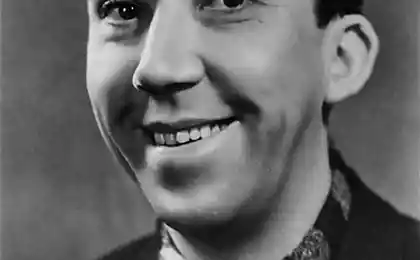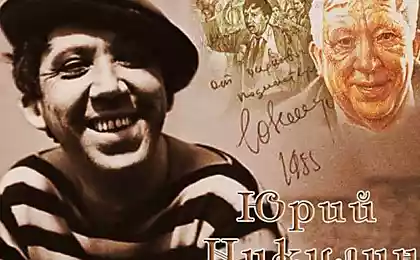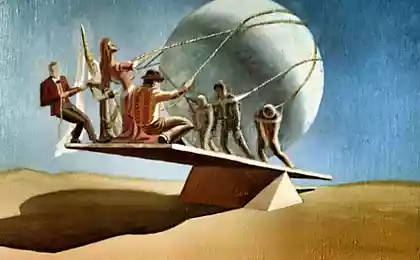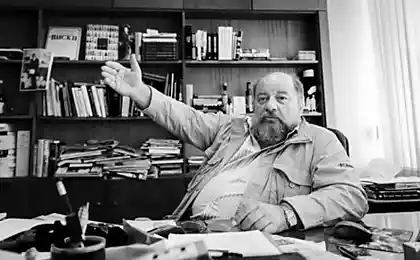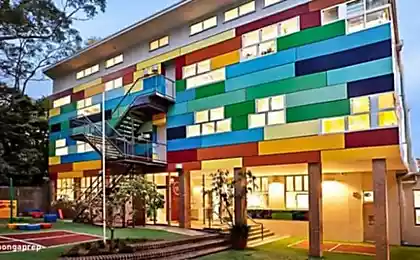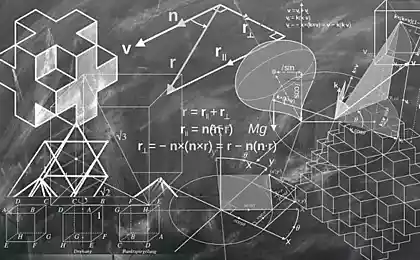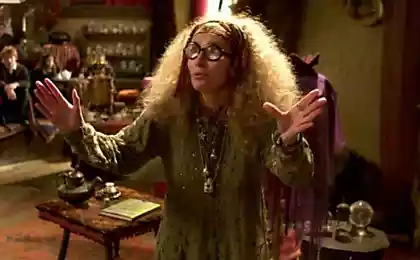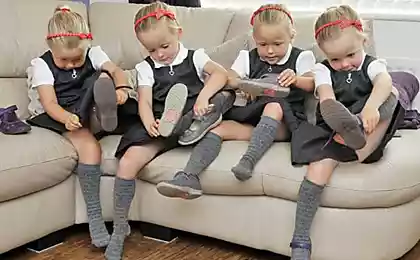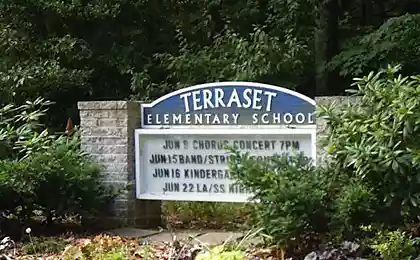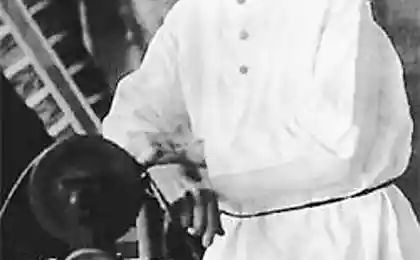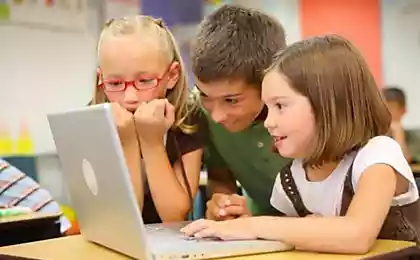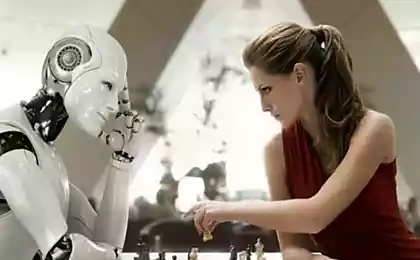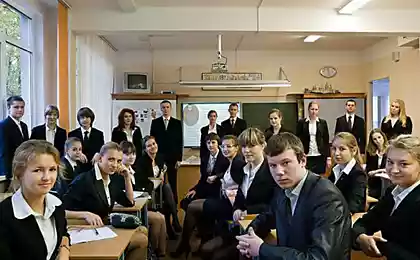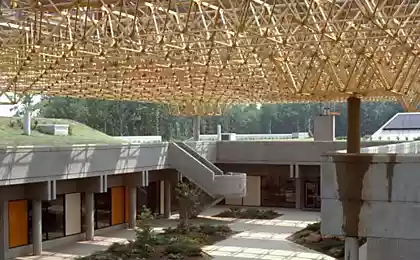552
Russian school — nervous kids
Think of a Person who needs 5-6 days a week to go to work. He has from two to ten chiefs. Daily, with a probability of more than 50%, some of the chiefs (at least one) calls him out "on the carpet". With a probability of at least 50% of the conversation ends in a little reprimand. If the reprimand is serious, it immediately becomes known to the human family.
Which, consequently, leads to a showdown in the walls of his home. And so every day! This Person understands that some of his colleagues, the chiefs are not the way to it: not so much blamed for the backlog, not appreciate, do not give this complexity of the task as he...
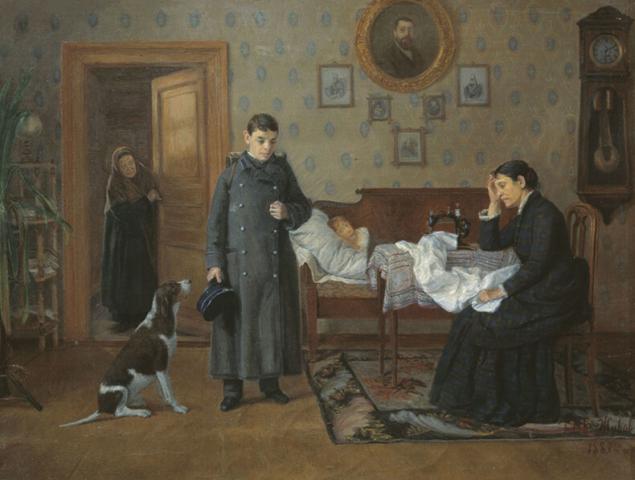
Introduced the psychological state of the Person? His early awakening and "desire" to go to work? And if the chief likes to give a "detailed" evaluation of the performance in the presence of colleagues? And exit because there is — in all organizations such a system, only the chiefs to another person. Pat!
And you — only 9-10 years...
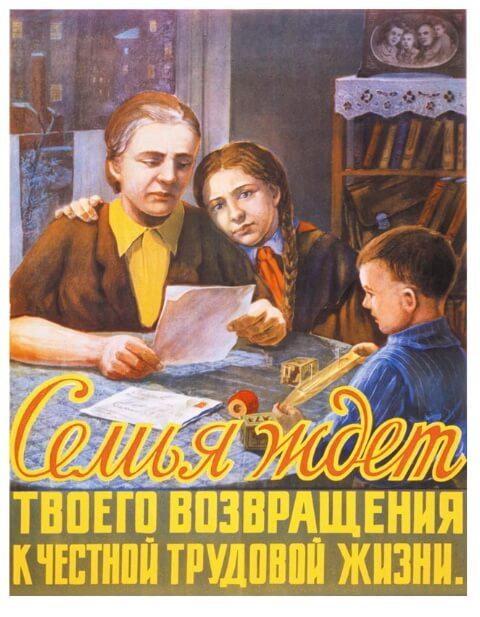
Soviet poster. Source: tradingrussian.blogspot.com
In Russian schools learn impossible. Regularly in our cozy house on vacation the rest of Russian children 8-14 years. Smart, well-read, resourceful, visited 2-3 countries. They have educated parents who genuinely cares about the development of your child. And each time, rejoicing in their arrival, many interesting conversations, we are surprised by their increased (in comparison with Czech children) emotional.
The degree of participation in games, perceptual views our Russian child compare with ten Czechs (about all Europeans will not speak). Why do you think their nervous system is so "explosive"?
This is, in my opinion, is the main difference of domestic from foreign schools, where teachers perceived not as a boss but as a mentor, as a man who can Express his opinion about the unpreparedness of the child to the lesson, but it will not affect the relations in the family. Which can cause the Board, but if the child does not want to, will call another student and continue the lesson. And the children in the classroom don't sit waiting for "cause or not", and ... still learning.
What problems are solved?
The years go by, and the picture in secondary education is not changing. Despite technological progress, a great experience copyright many schools, aimed at developing, many online resources with lessons across the curriculum practically in all Russian schools (yet) dominates the system, where the teacher remains the main source of knowledge.
The attempts of some teachers to teach in other technologies (blended learning, more techniques...) does not change the picture, but rather leads to various problems. The staff does not understand how to change the lesson in class, working on other technology, parents don't understand, why a new method is needed. A new (or well forgotten old, but not massively implemented) approaches are necessary. And here's why.
The teacher is now not the main source of knowledge.
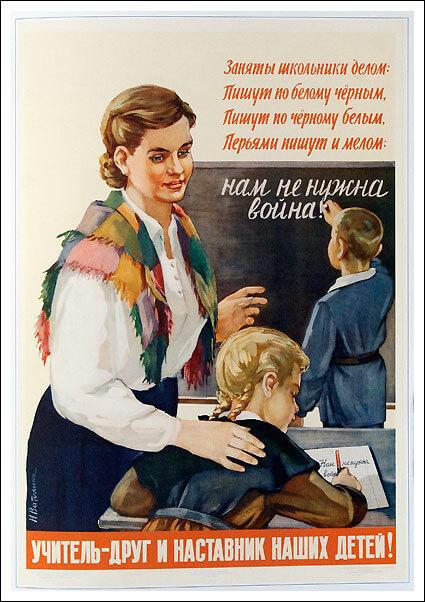
Soviet poster. Source: relax.ru
If we accept it, it means that with the teacher the student can argue. Further, the these disputes will only get bigger. And the teacher is only one correct way to be over this dispute to manage it. To be able to argue, a teacher must have certain skills to participate in the debate. The theme of the debate is quite popular among Russian students, but if students of some universities it is a hobby, for students of teacher training institutions that should be the rule! Only personally participated several times in the debate, you can try yourself in the role of expert. And this experience is desperately needed now a modern teacher, to build the educational process in the form of a dialogue in the class, causing the boys to the solution of problem tasks, positioning yourself as a mentor.
Teacher-mentor... Who is he? This man should not only be professional in his subject (it is not discussed!), but it needs to be:
1) authority for children;
2) be able to manage the team, keep him in the center of his attention;
3) be able to work with the whole class and with groups;
4) be able to improvise without going "beyond the program".
Information (not only technical but also educational!) every year it becomes more and more.Anyone you do not like? Do not you think that these tasks are similar to the challenges facing theater artists? They again played the same piece that the audience not only read, but also looked ahead, and still manage to hold the audience in suspense! But why in the curriculum of teacher training universities in the program of teacher training does not include classes in acting and public speaking, door-to-door? Because of the situation in the two professions are very similar, only the responsibility of "little" different!
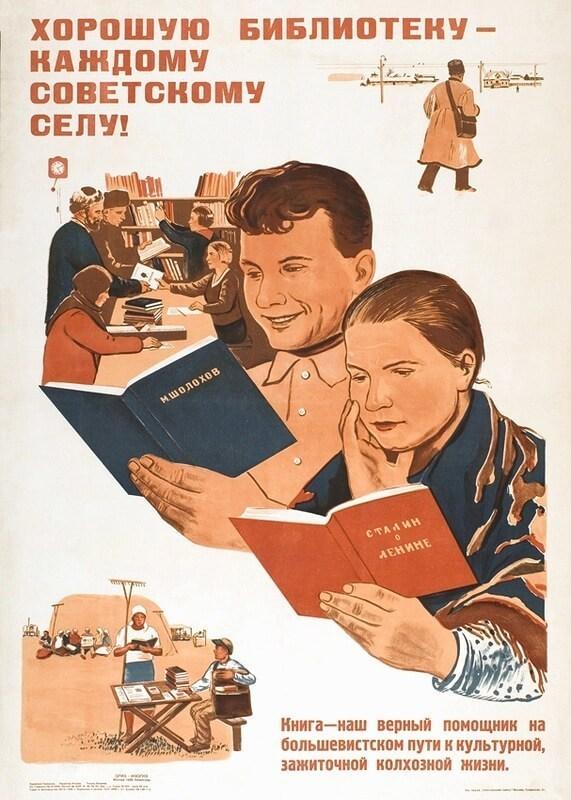
Soviet poster. Source: www.savok.org
Despite all the accepted norms, to track the number of student time for homework extremely difficult. Someone missing two hours, but some of the children were sitting till night. The theme is eternal and there is no solution. Or, at least, it was not until the appearance of the technology "flipped learning" where children are at home studying the subject, doing a few simple examples, and work on complex tasks is already in school. With this approach, to calculate the duration of the homework much easier. And the whole process is "head to foot": the child learns to learn, is in school to solve complex problems together with teacher and friends.
You need to jump on this technology? First, to determine the content of children's items: textbook (required) plus one or two (!) common to all of the subject Internet-resources. In my opinion, our tutorials do not meet this technology, they are written for teachers, not for children and definitely need to create a new one. But while others have not, and time is running out...
Second, to develop a school plan for a phased transition to the system. For example: from the next academic year for this procedure, all teachers are 5-7, grade 10 the entire first quarter. For the second year of year — classes 5-8, 10-11 all the first half. Etc. of Course, without the leadership of the administration, such a transition is not implemented.
Methods of assessment of knowledge obsolete.
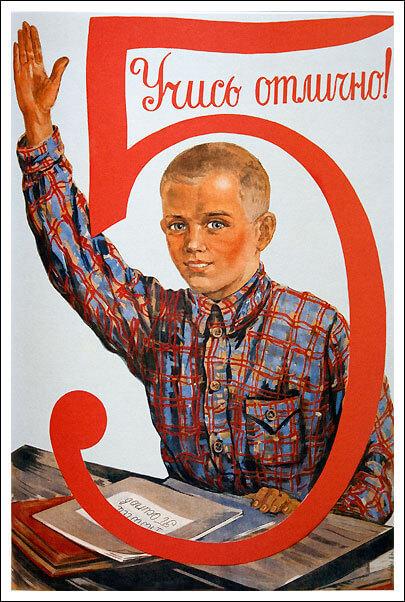
Soviet poster for the male schools. Source: propagandahistory.ru
Recently discussed with colleagues the subject. This is the dialogue we have:
— (colleagues) You incorrectly make the final grade! If the student received on the tests "3" and "5", then you need to put "4". And for some reason you put "5"! And the other disciple "5" and "3" he put a "3"!
— (I) the final assessment is the assessment for annual tests, which was all the material that was the same for everyone and where no one was able to write off. So?
— So.
— So this annual and is a measure of his knowledge!
— It turns out that previous estimates you don't need and all year the students learned "for itself"?
— Who else? Imagine you are studying two students. 1 student regularly attends classes, meets at the Board, regularly gets a solid "4", sometimes even "5". Annual control he writes "5". What are you going to put in a year?
— "4".
Okay. Student 2 gets sick a lot, skips classes, skips the current test. But is comes to annual control gets "5". What are you going to put in a year?
— "5".
— Conclusion: to get a good grade for a year, your classes it is best to visit as rarely as possible...
From student requires the creation of an individual project.As for what to put evaluation to the students, if the teacher still mentor, and the discussion is shaped in the form of a dialogue? Can be restricted to only the control works, the same for all students in content and assessment? If it is difficult to abandon assessments of their educational (and whether?) the role, at least not to take into account the current estimates when setting the final? And if to consider, that to answer at the blackboard, written test, current and final tests to enter your "weight"? Moreover, to do it in electronic diaries is technically difficult (in Czech schools because it operates e-magazine).Only not to forget to communicate these changes to parents and children!
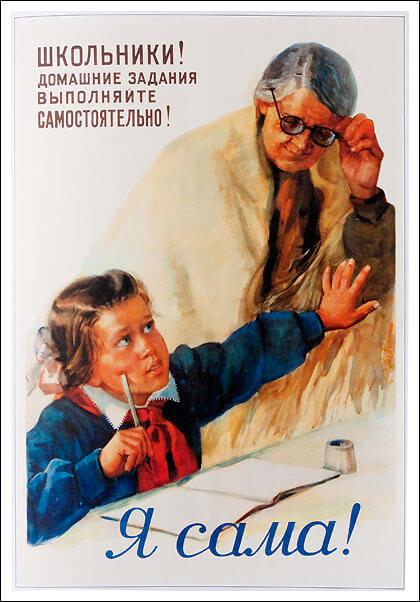
Soviet poster. Source: relax.ru
It used to be "at will", now it has become the norm. When working on a project, teachers need not only to find the topic, but the right to present it, to carry her child. Moreover, it is desirable to make it so that in the formation of topics were attended by the pupil!
To be honest, I did not understand how it is possible to make without knowledge of TRIZ-technology. They are written about, the names of TRIZ-the founders and associates is widely known not only in Russia, and examples of implementation of this direction in high school! Why this item is not made mandatory for students of teacher training institutions and trainees of training courses? Why in our schools, aimed at the development of "up to date", not to enter it at least optional?
Knowledge of the European, and the certificate is not listed.
Our education system tries to adopt the best achievements of world practice. Russian guys on the level of knowledge are not inferior to guys from Europe. But our certificate is not accepted by the slot machine in Western universities! One of the problems is the difference in the duration of training in Russia for 11 years, and standard for Europe — 12 (in the Czech high schools and all 13!). But if we switched to higher education to the Bologna system, if we recognize the increased burden on students at school, why do we "leave for later" question 12-year education? It's not just a matter of "convertibility" of the certificate, it is a question of the psychological state of our children!
Summary: what you need to do to feel better?
School rebus. That develop? Strong or weak side?
A poignant letter from a mother
Just a few points (of course, this is not the entire list!), to help our young generation to learn how to analyze the information (not only from television but also from the Internet resources), to argue and defend their views, seek to get "regular brown", but to professional fulfillment. So just to list them, just so them to write and so difficult to translate them in a separate school, separate Department in a separate College... But we do want our children to be happy, isn't it? published
Author: Yuriy Sereda
Source: newtonew.com/discussions/why-our-system-is-so-drastic
Which, consequently, leads to a showdown in the walls of his home. And so every day! This Person understands that some of his colleagues, the chiefs are not the way to it: not so much blamed for the backlog, not appreciate, do not give this complexity of the task as he...

Introduced the psychological state of the Person? His early awakening and "desire" to go to work? And if the chief likes to give a "detailed" evaluation of the performance in the presence of colleagues? And exit because there is — in all organizations such a system, only the chiefs to another person. Pat!
And you — only 9-10 years...

Soviet poster. Source: tradingrussian.blogspot.com
In Russian schools learn impossible. Regularly in our cozy house on vacation the rest of Russian children 8-14 years. Smart, well-read, resourceful, visited 2-3 countries. They have educated parents who genuinely cares about the development of your child. And each time, rejoicing in their arrival, many interesting conversations, we are surprised by their increased (in comparison with Czech children) emotional.
The degree of participation in games, perceptual views our Russian child compare with ten Czechs (about all Europeans will not speak). Why do you think their nervous system is so "explosive"?
This is, in my opinion, is the main difference of domestic from foreign schools, where teachers perceived not as a boss but as a mentor, as a man who can Express his opinion about the unpreparedness of the child to the lesson, but it will not affect the relations in the family. Which can cause the Board, but if the child does not want to, will call another student and continue the lesson. And the children in the classroom don't sit waiting for "cause or not", and ... still learning.
What problems are solved?
The years go by, and the picture in secondary education is not changing. Despite technological progress, a great experience copyright many schools, aimed at developing, many online resources with lessons across the curriculum practically in all Russian schools (yet) dominates the system, where the teacher remains the main source of knowledge.
The attempts of some teachers to teach in other technologies (blended learning, more techniques...) does not change the picture, but rather leads to various problems. The staff does not understand how to change the lesson in class, working on other technology, parents don't understand, why a new method is needed. A new (or well forgotten old, but not massively implemented) approaches are necessary. And here's why.
The teacher is now not the main source of knowledge.

Soviet poster. Source: relax.ru
If we accept it, it means that with the teacher the student can argue. Further, the these disputes will only get bigger. And the teacher is only one correct way to be over this dispute to manage it. To be able to argue, a teacher must have certain skills to participate in the debate. The theme of the debate is quite popular among Russian students, but if students of some universities it is a hobby, for students of teacher training institutions that should be the rule! Only personally participated several times in the debate, you can try yourself in the role of expert. And this experience is desperately needed now a modern teacher, to build the educational process in the form of a dialogue in the class, causing the boys to the solution of problem tasks, positioning yourself as a mentor.
Teacher-mentor... Who is he? This man should not only be professional in his subject (it is not discussed!), but it needs to be:
1) authority for children;
2) be able to manage the team, keep him in the center of his attention;
3) be able to work with the whole class and with groups;
4) be able to improvise without going "beyond the program".
Information (not only technical but also educational!) every year it becomes more and more.Anyone you do not like? Do not you think that these tasks are similar to the challenges facing theater artists? They again played the same piece that the audience not only read, but also looked ahead, and still manage to hold the audience in suspense! But why in the curriculum of teacher training universities in the program of teacher training does not include classes in acting and public speaking, door-to-door? Because of the situation in the two professions are very similar, only the responsibility of "little" different!

Soviet poster. Source: www.savok.org
Despite all the accepted norms, to track the number of student time for homework extremely difficult. Someone missing two hours, but some of the children were sitting till night. The theme is eternal and there is no solution. Or, at least, it was not until the appearance of the technology "flipped learning" where children are at home studying the subject, doing a few simple examples, and work on complex tasks is already in school. With this approach, to calculate the duration of the homework much easier. And the whole process is "head to foot": the child learns to learn, is in school to solve complex problems together with teacher and friends.
You need to jump on this technology? First, to determine the content of children's items: textbook (required) plus one or two (!) common to all of the subject Internet-resources. In my opinion, our tutorials do not meet this technology, they are written for teachers, not for children and definitely need to create a new one. But while others have not, and time is running out...
Second, to develop a school plan for a phased transition to the system. For example: from the next academic year for this procedure, all teachers are 5-7, grade 10 the entire first quarter. For the second year of year — classes 5-8, 10-11 all the first half. Etc. of Course, without the leadership of the administration, such a transition is not implemented.
Methods of assessment of knowledge obsolete.

Soviet poster for the male schools. Source: propagandahistory.ru
Recently discussed with colleagues the subject. This is the dialogue we have:
— (colleagues) You incorrectly make the final grade! If the student received on the tests "3" and "5", then you need to put "4". And for some reason you put "5"! And the other disciple "5" and "3" he put a "3"!
— (I) the final assessment is the assessment for annual tests, which was all the material that was the same for everyone and where no one was able to write off. So?
— So.
— So this annual and is a measure of his knowledge!
— It turns out that previous estimates you don't need and all year the students learned "for itself"?
— Who else? Imagine you are studying two students. 1 student regularly attends classes, meets at the Board, regularly gets a solid "4", sometimes even "5". Annual control he writes "5". What are you going to put in a year?
— "4".
Okay. Student 2 gets sick a lot, skips classes, skips the current test. But is comes to annual control gets "5". What are you going to put in a year?
— "5".
— Conclusion: to get a good grade for a year, your classes it is best to visit as rarely as possible...
From student requires the creation of an individual project.As for what to put evaluation to the students, if the teacher still mentor, and the discussion is shaped in the form of a dialogue? Can be restricted to only the control works, the same for all students in content and assessment? If it is difficult to abandon assessments of their educational (and whether?) the role, at least not to take into account the current estimates when setting the final? And if to consider, that to answer at the blackboard, written test, current and final tests to enter your "weight"? Moreover, to do it in electronic diaries is technically difficult (in Czech schools because it operates e-magazine).Only not to forget to communicate these changes to parents and children!

Soviet poster. Source: relax.ru
It used to be "at will", now it has become the norm. When working on a project, teachers need not only to find the topic, but the right to present it, to carry her child. Moreover, it is desirable to make it so that in the formation of topics were attended by the pupil!
To be honest, I did not understand how it is possible to make without knowledge of TRIZ-technology. They are written about, the names of TRIZ-the founders and associates is widely known not only in Russia, and examples of implementation of this direction in high school! Why this item is not made mandatory for students of teacher training institutions and trainees of training courses? Why in our schools, aimed at the development of "up to date", not to enter it at least optional?
Knowledge of the European, and the certificate is not listed.
Our education system tries to adopt the best achievements of world practice. Russian guys on the level of knowledge are not inferior to guys from Europe. But our certificate is not accepted by the slot machine in Western universities! One of the problems is the difference in the duration of training in Russia for 11 years, and standard for Europe — 12 (in the Czech high schools and all 13!). But if we switched to higher education to the Bologna system, if we recognize the increased burden on students at school, why do we "leave for later" question 12-year education? It's not just a matter of "convertibility" of the certificate, it is a question of the psychological state of our children!
Summary: what you need to do to feel better?
- be determined with a single evaluation system of students within one of the methodical Association of teachers within the same school, same Department;
- to reduce the psychological burden on the student when learning by the transition to 12-year education;
- aim of study in grades 5-9 are not successful passing of the state final examination, and helping the child in choosing a career;
- to reduce the burden on teachers by requiring schools to have only one magazine for estimates: either paper or electronic. Or, as a compromise with the e-journal in paper to expose only the total of the annual assessment;
- to raise the level of professionalism of teachers entering the training system, the program of pedagogical higher education institutions mandatory courses on TRIZ technology system of Stanislavsky, the organization of the debate;
- to increase the prestige of the teaching profession, organized on the main TV channels regular programs devoted to secondary education. To give this issue the same time and attention as medicine and defense!
School rebus. That develop? Strong or weak side?
A poignant letter from a mother
Just a few points (of course, this is not the entire list!), to help our young generation to learn how to analyze the information (not only from television but also from the Internet resources), to argue and defend their views, seek to get "regular brown", but to professional fulfillment. So just to list them, just so them to write and so difficult to translate them in a separate school, separate Department in a separate College... But we do want our children to be happy, isn't it? published
Author: Yuriy Sereda
Source: newtonew.com/discussions/why-our-system-is-so-drastic

